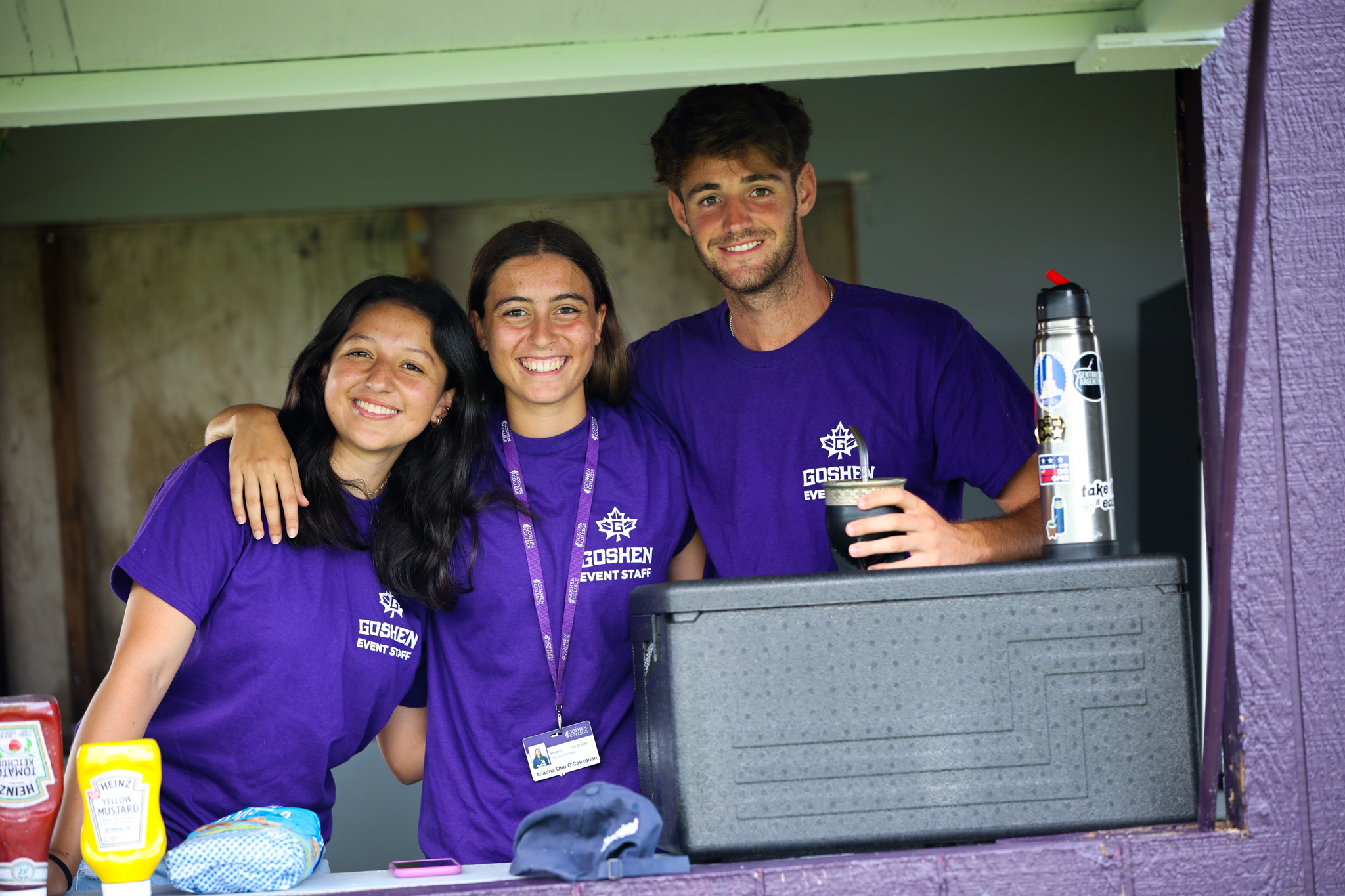Game day — in many ways the culmination of the work of the athletic department. But, a little more than a year ago, the department went through a pretty significant change in how each game runs.
In years past, Goshen College traditionally had a smaller staff for game days than many of the other schools in the Crossroads League, as they chose to pay each of their student-athletes who worked there.However, in conversations in the summer of 2023, the department decided to change things up, in an effort to save money, improve game day experiences and to more closely align with the practices of other similar schools.
The decisions they landed on was to pass on the “unskilled” tasks, such as concessions, ticket taking and mopping to student-athlete volunteers, and keep the “skilled” positions, like PA announcing and operating the scoreboard or shot clock as paid.
Each team’s coach is responsible for coordinating their athletes’ volunteer timing, with most individuals usually needing to work two to three games, or roughly four to six hours over the course of the year. Each team takes a turn in the rotation when they are out of season, and most are allowed to sign up for whatever time works for them and encouraged to sign up with friends.
Joey Paternostro, sophomore broadcasting major on the baseball team, is one student who has really enjoyed the change. Though he admits he can sometimes feel hesitant leading up to the work, he said that in the end, once he is actually working, “it does give [him] a sense of involvement and a sense of joy.”
He has had many positive experiences, in particular noting the kindness of visiting fans and the satisfaction of seeing families come together to support their athlete.
Chad Coleman, interim athletic director, also sees this change as a net positive. He believes that it allows the athletic department to save up to “five or six figures sometimes” in student wages by not paying all game day positions, money that is then distributed into other department needs.
Carissa Fillingame however, a senior nursing major on the softball team, has been less of a fan of the change in policy. She feels that since it can often be inaccessible for student athletes to find jobs off campus, the department should have prioritized jobs like the game day ones that allowed student athletes more opportunities for employment. She said that in her experience, the cutting of those jobs has “added a lot of weight on top of people, that I don’t necessarily agree with,” creating a new financial burden.
Coleman emphasized that even if some student athletes don’t see the money that’s being saved in their own pockets any more, that money is being poured back out in ways that directly help them. “Ultimately their team does benefit from it, and … the athletic department benefits from it,” Coleman said, “We’re getting those fruits spread across many areas.”
Two upcoming sports, baseball and softball, are among the few game days that don’t really fall under this policy, since they really have no reason to need student workers. With no ticket taking and no concessions, Coleman said that “I’m not gonna have students go out there and chase foul balls.” Fillingame agreed with the sentiment, explaining that chasing their own foul calls is just something that softball players grow up with, and is sort of the “industry standard” in NAIA softball.
Though there are still mixed feelings from student-athletes about the program, Coleman feels that it is in GC athletics best interest at the moment, and doesn’t look to be changing things up any time soon.




